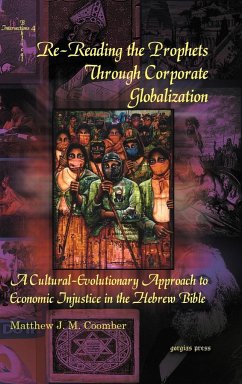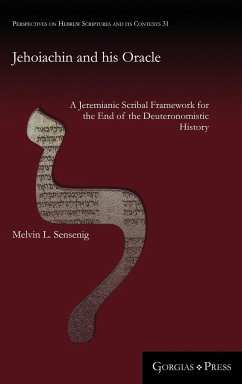
Divine and Human Hate in the Ancient Near East
A Lexical and Contextual Analysis
Versandkostenfrei!
Versandfertig in 1-2 Wochen
103,99 €
inkl. MwSt.

PAYBACK Punkte
52 °P sammeln!
Divine emotion is a ubiquitous feature of ancient Near Eastern documents. These texts regularly assign the same spectrum of feelings experienced by humans (e.g., love, anger, joy) to the divine realm. Divine and Human Hate in the Ancient Near East: A Lexical and Contextual Analysis is a comprehensive study of divine hate. On seventeen separate occasions, the Hebrew Bible describes Yahweh as hateful. But an ascription of hate extends to more ancient Near Eastern deities than Yahweh. Canaanite texts from Ugarit and Akkadian documents also characterize their gods as hateful. The fundamental quest...
Divine emotion is a ubiquitous feature of ancient Near Eastern documents. These texts regularly assign the same spectrum of feelings experienced by humans (e.g., love, anger, joy) to the divine realm. Divine and Human Hate in the Ancient Near East: A Lexical and Contextual Analysis is a comprehensive study of divine hate. On seventeen separate occasions, the Hebrew Bible describes Yahweh as hateful. But an ascription of hate extends to more ancient Near Eastern deities than Yahweh. Canaanite texts from Ugarit and Akkadian documents also characterize their gods as hateful. The fundamental question guiding this inquiry is, is Yahweh's hate comparable to instances of divine hate from the greater ancient Near East or is his hate different? Methodologically, Divine and Human Hate is a lexical study of Hebrew, Ugaritic, and Akkadian lexemes for hate originating in divine figures. But since the ancients expressed divine emotion with terms from their own experiences, human hate receives attention as well. Divine and Human Hate is also a contextual analysis of divine and human hate in biblical Hebrew, Ugaritic, and Akkadian. Therefore, the book's focus is comparing and contrasting instances of divine and human hate in biblical and cognate writings.












